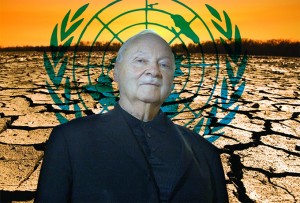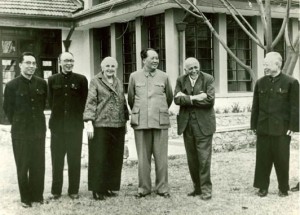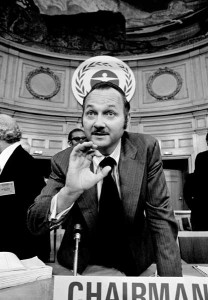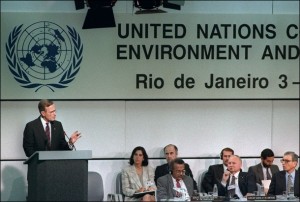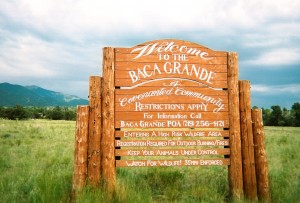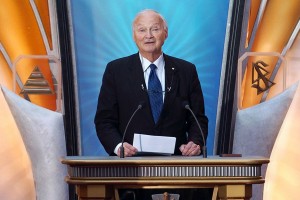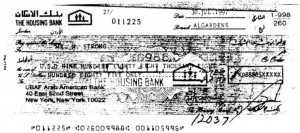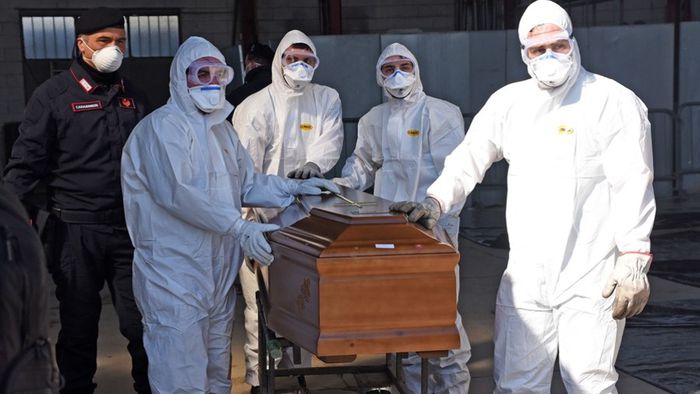Moderator: Mr. Streek this study that you are now pursuing and which you say
should have been done a lot sooner, what exactly are you doing and when you say
I am actually the scientist who has seen the most CoVid-19 patients in this country?
What did you see there, what were the symptoms? How seriously must one take this disease and how relaxed
do we have to be on the other side at some point? Because we have to learn to deal with it simply and
touching. It's no use to panicking the people from morning to night.
Streeck: Well, this is because we were asked by the health department in Heinsberg whether we could take over the Diagnostics for a while. So the determination of whether or not there is a CoVid-19 infection. In the evening I sat down with a good friend of mine who is from internal medicine at the hospital and we have thought that it is actually also a chance to better understand the disease. Then we have put togehter the ethics and the study and then the next day, together with the hygiene in Bonn under
Ricarda Schmidthausen, drove out to Gangelt and in close cooperation with the administration in Heinsberg (and Mr. Pusch??) and then went from household to household. We asked the people about symptoms. We asked them how they may have been infected, what medications and pre-existing conditions you have and also took some smears and took blood samples. At the same time, we took smears (or swab? don't know the right translation here) of the environment. We tested to see if the
virus was on the doorknobs is, in the air, in the toilet, on the phone, on the remote control and have also took smears from the cats (they took smears/swabs from all these places). We went, several days, from house to house and talked to the people.
We have already given the research result to the press. The result was that almost everyone reported a loss of smell and taste.
That stays for a few days and then it comes back again. It's not permanent but it was a symptom that hadn't been noticed before.
Moderator: And you said that went extremely far. So the loss of the sense of smell. I can remember a sentence from your reporting
that a woman could no longer smell her own baby's full diaper.
Streeck: Yes, exactly. That was a nurse who then reported very impressively how she herself tested with vinegar essence whether
she can still smell it. She was taken aback by it. The first one who told us, we didn't took him too seriously at first. We thought,
he's having a quarantine meltdown or that he's reacting a little psychosomatically. We don't know exactly when this will occur (at which point during the infection).
We believe it doesn't occur until the end of the illness. There are also other reports that in some cases other nerves are affected.
From Iran I have received a report which says that it can also affect the ears. It was reported, for a short time, about deafness.
Moderator: The short time is important in this context. This means that the loss of sense comes back again.
Streeck: Yes. But we have never observed this ourselves, a deafness, but only the loss of taste and smell.
Moderator: When you say: "we have taken swabs everywhere, even on the cat". Where are the most viruses?
This is a big issue for many people. We have many contradictory reports. What can you tell us in a binding way?
Streeck: By the way, the cats have cooperated super. They all bit on the chopsticks. None of the cats has been positive tested for CoVid-19.
But what is more interesting, we did detect viruses on the door handles, toilets and washbasins, but in the Virology Department we took these swabs and tried to breed them. We tried to find out if the virus could grow and if it was infectious.
We never could! This means that we have detected the DNA of dead viruses, i.e. RNA from dead viruses, but we have not obtained a living virus from it.
Moderator: That is, he reach for the door handle, the fruit basket in the supermarket, the cat, the telephone, whatever... there is no risk of this?
Streeck: Yes. So that's what's going to happen in the new study we're doing now. We want to have a representative sample in these areas as well, to be able to say exactly where there is a virus and where there is no virus. But it seems to me, from the results of this study,
that a door handle can only be infectious if someone has coughed in the hand and then grabbed the handle
and you reached for the doorknob again afterwards.
Moderator: How long do the viruses stay on it? Do you have an idea?
Streeck: Such a time study has never been carried out before. We don't know for sure but we were in a
Household where many highly infectious people have lived and yet we have not received a live virus from any surface.
Moderator: Now that's good news. It means keeping people away from getting too close, not talking to someone up close for too long and washing our hands, is really getting us somewhere.
Streeck: I'm convinced of it. I also find the problem in our discussions so far to be that we talk a lot about speculation and model calculations. Only one factor in such a mathematical calculation has to be wrong, then it all falls together like a house of cards.
I think that's exactly what you have to do, that you collect the data together and really create facts, so that you can make recommendations on the basis of them and make decisions on the basis of them.
Moderator: May I ask, has the Robert-Koch-Institute, these studies in Heinsberg, where one could look at them as an example, so to speak, have they also examined them?
(Note from Laurentiu: In this situation, Robert-Koch-Institute is for germany what the NHS is for UK or the NIAID for the US)
Streeck: No, I was surprised myself that they didn't do that. We held ourselves back from our side for the time being,
because we thought it was a federal agency job to do that. After all, they also give us recommendations for diagnostics, who to test, how not to test. When I then learned that the Robert-Koch-Institute does not carry out such studies, but also does not think about it, I actually found it almost a duty as a virologist that we should do this. Of course, I could well imagine that I could now just go about my normal working day. That is of course an extreme additional burden but such a study must be done so that we can find answers simply for politicians but also for citizens.
Moderator: Do I take it from that too, I'm just trying to hear a little bit between the lines, Mrs. Käßmann (Theologian who is also present) nods too, you probably just had the same feeling. You say that we are too fast at some points, we make decisions based on facts that are no longer really verified. And again, to put it bluntly, this shutdown and the whole paralyzing of the public life so to speak, was that too fast for you? Is that something you're saying, then we need to talk about whether that was right?
Streeck: Yes, in retrospect you can always say that you know better. But when that moment was, when we had to take a measure in a very short time... I don't remember how it started but it was only the bigger events that were cancelled. Then schools were closed and then came the curfew. And to the curfew I said in advance we should wait and see what happens. The virus does not obey any politician, it does not obey any human being.
Especially because what we decide today, we will not see the result for two weeks. Now we are slowly starting to "maybe" see the results from the first measures. But we have to give the virus time, so that we can also see and assess the results in the long term. To see what works and what not. Just as wrong I would find it now to turn everything back immediately and say that it all worked. Now we are in this situation, now we have to look how we can control the virus or the infection rates.
Moderator: But what does that mean in translation? Would you have let it run for now, so to speak? Or what would you have done? In this context we also have to talk about this Swedish way, their very interesting way. Because on the other hand we see the countries in Southeast Asia which were trying very, very, very quickly to understand where the infections are. Where do people go, where do people go. Including taking temperatures, including mouth guards and so on and so on. They actually got a handle on that relatively quickly. Should we have done the same? What would you have suggested?
Streeck: I think that what South Korea had done well was to test. A lot of testing, and when they found a cluster, people tested positive, then to contain it there directly. However, a curfew was not imposed on an entire country, but contacts were traced and then tested and contained there. That was, in my opinion, a very good strategy and also a strategy that is feasible for a country like Germany. We have the possibilities.
Moderator: Because we have the opportunity to test so much, you mean?
Streeck: Yes. The danger with this virus is when it gets to the hospital, when it gets to the old people's home, to the nursing home. We can see this in the example of Wolfsburg and Würzburg where really unique.......
Moderator: Or in Italy too.
Streeck: Or in Italy.
Moderator: Well, that's what I always read and hear, that the Italians now understand that the clinics were real virus-slingers in the beginning. Because it was not clear what they were dealing with.
Streeck: And that's something we have to deal with, that we have the vurnerable population, that is a part of the population for which the virus is really dangerous.
How can we better protect them and how can we avoid spreading it there. One can imagine, for example, that all the nursing staff, all the employees, are tested every four to seven days. This can be done through pool procedures (?) that are already used in transfusion medicine to test blood reserves for HIV or hepatitis.
This is the procedure that virologists and transfusion physicians deal with every day. This is something that can be applied.
We might be able to save nursing homes from the virus permanently, for example. You have to think about such ideas and develop them. But there are many people involved. Many experts and not just individuals.
Moderator: You say many experts not just a few. For me, this crisis also has a face, and that is above all the face of Mr. Drosten, who is the virologist of the Charité.
In this context, do you think it is a mistake not to get the other bright minds together? Because they all have different focuses. So
is doing a panel of experts, in the manner of an ethics council, of which Mr. Merkel (Probably Reinhard Merkel from ethikrat.org) is a member. At that time initiated by Chancellor Schröder. Would that have been probably a better way?
Streeck: I have the highest regard for Mr. Drosten...
Moderator: You are his successor, after all.
Streeck: ... ...as a colleague. He is a good colleague and I value his opinion. It's not without reason that he heads the National Reference Center for Coronaviruses and is thus also the first consultant for it. I think that's absolutely right. Only, all of us virologists work differently here. That may be slowly creeping in, that the population notices but Mr. Drosten for example works very virus centered. So he starts from the virus and looks at what makes the virus so special and how did it get for example, from the bat into humans and how it spreads. My work is more about looking at what the virus does to humans and how the immune system reacts to it. How's the clinic with the virus. What Mr. Drosten can do, I can't. But what I can do, Mr. Drosten, not as well as I can. There's no competition, just that you have your own specialties. And I think it's a pity that the government has gone into it in a rather monothematic way.
Käßmann (a Theologian who is also present): One could make a roundtable of all the virologists or an exchange with the Chinese.
There is no such thing?
Streeck: No, unfortunately, there is no such thing yet. This has now been started by the BMBF (Federal Ministry of Education and Research) to establish a larger network between researchers. But so far, that doesn't exist.
Moderator: Is that too late? Before we talk about it with Mrs. Käßmann and also with Mr. Fratzscher (Economist). I mean, what we are experiencing right now, you yourself say that, "I'm not speaking as a virologist, I'm speaking as a citizen of this country". This has such an impact on the existence of many people that we must of course urgently think about how this actually continues. Because if we go through this for a very long time then life will be ... then the world will be a different place.
Streeck: Yes, I'm a bit conflicted, of course, because I'm a virologist and I'm sitting here as a virologist and not as an expert in economics or ethics. But of course I also have my personal opinion on this and I can weigh up for myself, at least in my chest, what I think of individual measures and what they mean. So also from the doctor's point of view, because one deals with ethics issues.
And even if I speak as a citizen, I believe it is the same for everyone else, even if you speak from the business world, it is important to assess where your own limits are. And there is quite clearly my limit where I simply cannot give any expertise.
But we have already dealt with many viruses and I just know, or rather I see what such a curfew does to people. I have friends myself who wonder if they will have a job after this or friends who wonder if they can pay their rent in the long run. I find this limitations quite drastic in relation to other viruses and other epidemics we have had.
I can't estimate that but I would have wished that if such a measure is taken, that you don't react violently immediately but first think together about where you want to go.
Our limit is the capacity limit of the hospitals. It's not the number of people infected. We've never heard what our policy is, what our goal is. Are thousands of infections a day too many? Is a hundred too many? Is one too many?
We can't contain it completely and instead of always counting how many new infections we have, we have to listen to the intensive care doctors and say this is our limit. Of course we have a time lag, but in the end they are the ones who can best assess which measures are actually the right ones and which are not.
Moderator: That means that one should think about an exit strategy slowly?
Streeck: Personally, speaking as a citizen again, I think it is extremely important...
Moderator: Me too! But how could it look like? that's the big question. How do we get out of this situation?
Streeck: ...and that is why we have just initiated this study. To create facts, to say we now have so and so many percent undetected.
To be able to say "that many were infected and that's actually the mortality rate". We can look at what the actual routes of infection are, where there is a real benefit to breaking through them or to avoid. And these are areas where it makes no sense or where measures can be relaxed. For example, we have never heard of infection in hairdressing salons now. Hairdressing salons are closed.
Moderator: Interesting. I get it, okay, but go on. Could you please be more specific first, I'm very interested in that as well, with shops for example. They do not understand how we are in the situation .... because in the supermarket the risk really has to be minimized .... because people think along with us and keep their distance and so on. Why shouldn't that work in a clothing store, for example. I've never understood that.
Streeck: Yes, I had just asked myself in the mask (when they get ready for the camera) ... you didn't talk anymore. One wears a mask... We just don't know that infections have ever occurred through that. And I think it is important as a scientist and virologist to remember in the end what we know and what we do not know. We know relatively well that it is not a smear infection.
Moderator: The doorknob...
Streeck: Yeah, the doorknob. But we know that dancing and celebrating close together, celebrating exuberantly, that there have been many infections. Now it is actually about finding the nuances in between. When can an infection take place and when does no infection take place. And that has to be a guideline at the end of the day so that certain measures can be reversed.
Moderator: Interesting. Before we open the round table again (opening the talk to the other guests). I'm just hanging this sentence after which you mentioned before (meaning, he still things about what Streeck said before). "You have to give the virus a little time". Is that what Sweden is doing right now? They're going a different way, and they're making a big appeal to personal responsibility.
Tell me. What are the Swedes doing right now?
Streeck: Well, I think the Swedes are... ...it's risky what they're doing in the political environment right now, because every other government is going a lot of more drastically in the way. I don't think they're doing it all that wrong. We know how the virus is transmitted. That there is proximity and time with an infected person.
So if you're close and you talk and you spit a bit when you talk, for example, you get an infection. And the Swedes are appealing for people to keep their distance, not to have large groups, but to live normal life, normal everyday life goes on. And they appeal to hand hygiene and that they take care of each other when someone feels sick. When he stays at home ... I do not know what will happen ...
Moderator: How are the numbers developing? Do you have this in mind?
Streeck: I don't have that in view. Whether these... these are recent decisions. I can't seriously say: they are now going to
go up or go down. These are predictions that no virologist can make. But from what I've been thinking, at least now I don't think it's unreasonable for Sweden to have gone this way.

